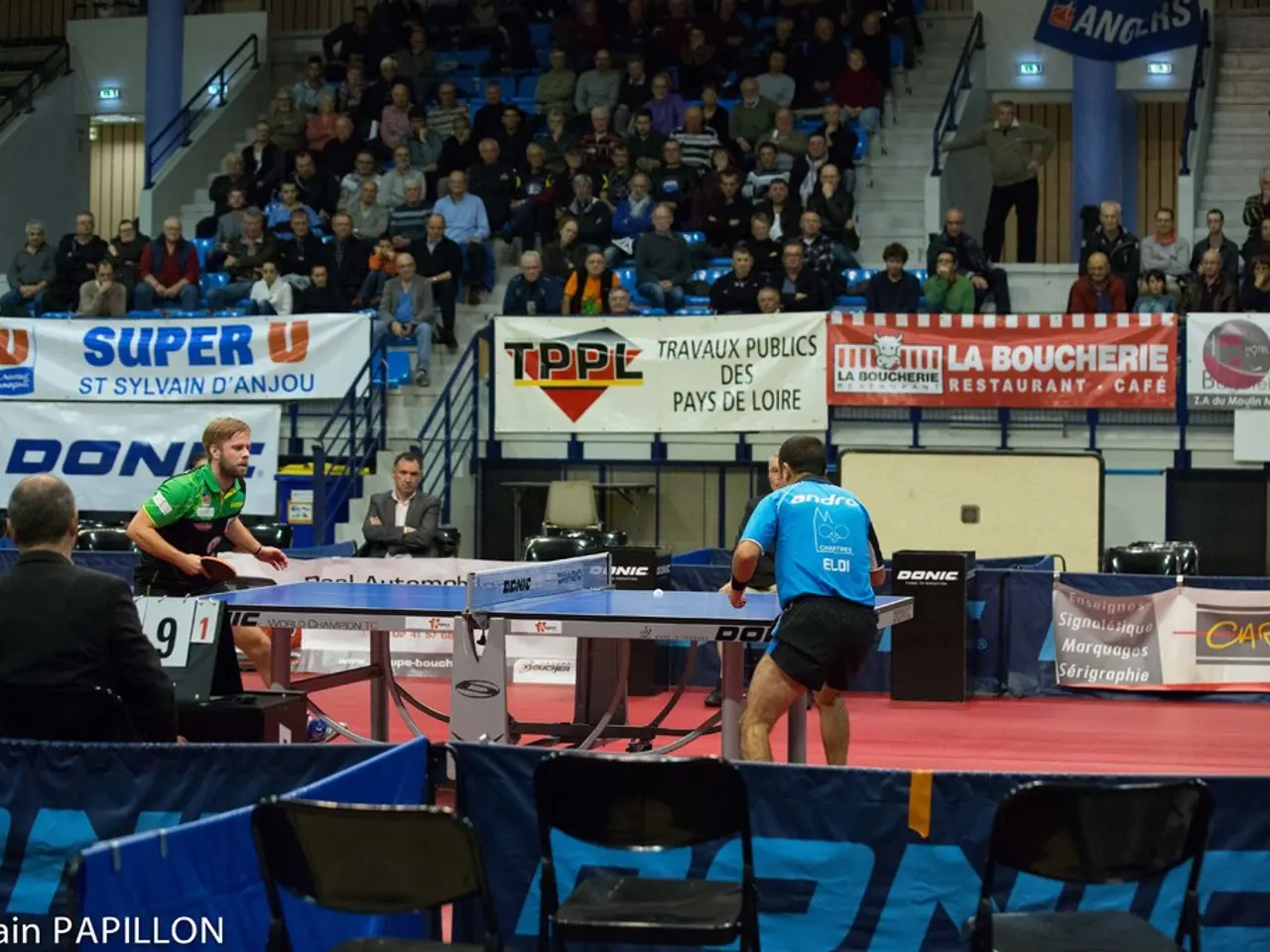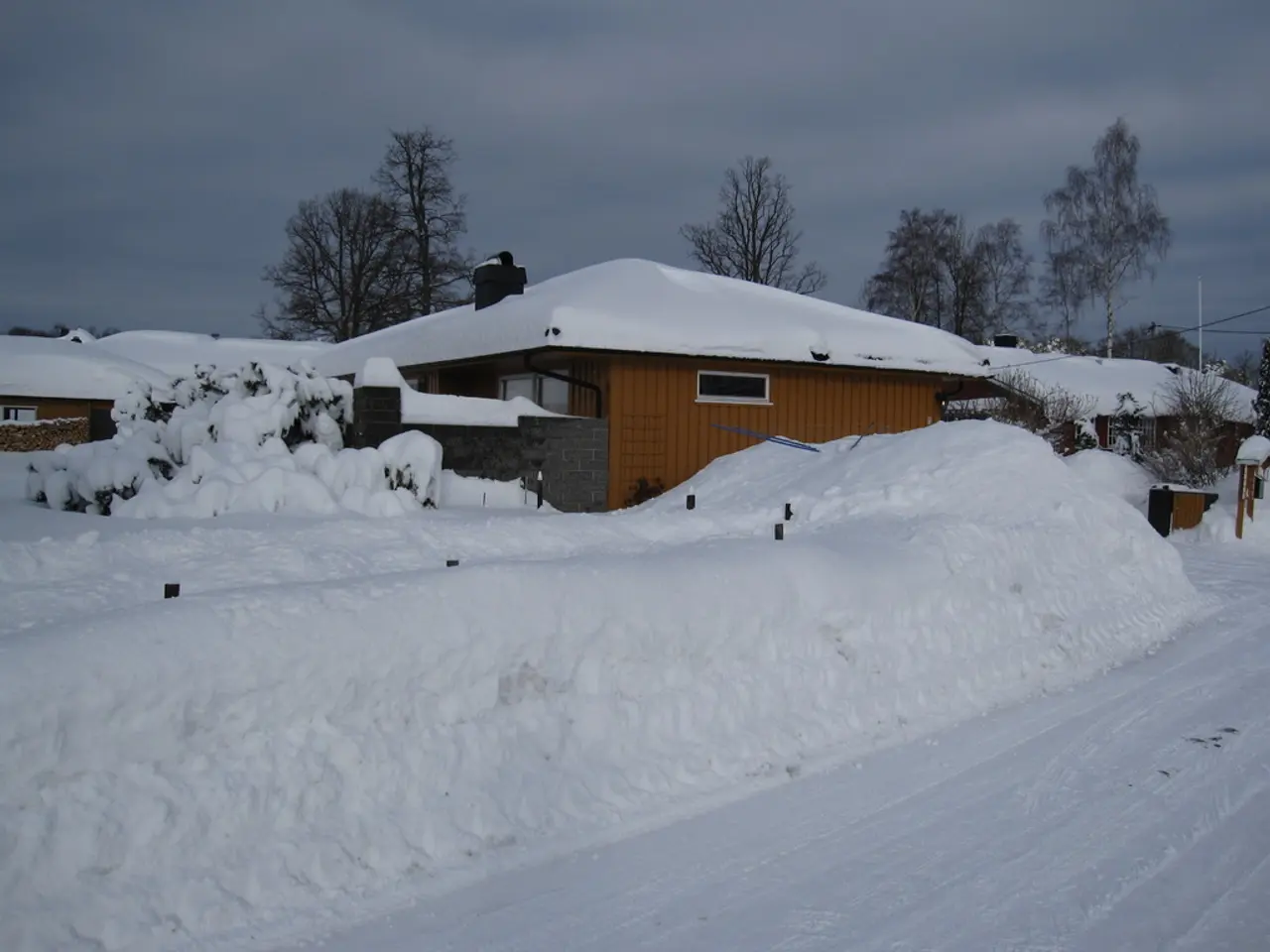Buildings not sprouting up despite large financial commitments for construction - Investment in housing isn't yielding anticipated growth
Despite record investments by the Berlin-Brandenburg Association of Housing Companies (BBU), the housing market in Berlin appears to be experiencing a period of stagnation in 2023. The BBU expects around 5,300 new apartments to be completed, similar to the number from the previous year.
Several interrelated factors contribute to this stagnation. The sale of new-build flats in Berlin has seen a significant decline, with only 1,240 transactions recorded in 2023. The average living space of new flats has decreased from 92 sqm in 2010 to around 70 sqm by 2023, indicating smaller apartments being built.
High purchase prices are another significant barrier to building more apartments. The average purchase price for new flats has risen significantly to over EUR 532,000, which might price out many buyers or slow sales. This high cost likely contributes to the stagnation in construction activity as market demand softens.
Market saturation and pricing pressure also play a role. While new construction activity remains notable in specific districts like Spandau, rental prices in new buildings have only seen marginal increases recently, reflecting a cooling market potentially limiting profitability and expansion incentives for developers.
The overall economic growth in Germany and Berlin remains modest, with the DIW Berlin report projecting slow economic growth (0.3% in 2025 and 1.7% in 2026) and rising income inequality. Economic uncertainty and wage disparities may reduce demand for new housing or slow purchase decisions, further impacting construction momentum.
Delayed contract registrations might also be a factor, with some sales contracts being registered later in the year. However, the trend remains downward in the reported period.
Despite these challenges, the BBU sees positive signals for the housing market in Berlin. The "Faster Building Act Berlin," the planned Berlin administrative reform, the renewed Berlin Housing Pact, and the federal government's "Building Turbo" are all initiatives aimed at improving planning security and flexibility in the housing market.
The BBU continues to represent a variety of actors, including communal, ecclesiastical, cooperative, and private economic entities, accounting for approximately 45% of Berlin's rental housing stock. Despite the current stagnation, the BBU's investments in new construction are expected to increase significantly by 2025, potentially leading to a recovery or increase in housing construction.
[1] Berliner Morgenpost, 2023. "Berlin's Housing Market Stagnates: High Prices, Smaller Apartments, and Cautious Demand." Accessed March 31, 2023. [2] Wirtschaftswoche, 2023. "Berlin's Rental Prices Show Signs of Cooling: What Does This Mean for Developers?" Accessed March 31, 2023. [3] DIW Berlin, 2023. "Germany's Economic Outlook: Slow Growth and Rising Inequality." Accessed March 31, 2023.
- In an attempt to stimulate the stagnating housing market, the BBU, alongside various initiatives such as the "Faster Building Act Berlin," the Berlin administrative reform, the renewed Berlin Housing Pact, and the federal government's "Building Turbo," aims to improve planning security and flexibility in employment policies, hoping to attract more development and construction activities.
- With the growing number of sports enthusiasts in the community, some local employment policies may consider implementing programs that encourage the construction of sports facilities and introduce sports-focused job opportunities, contributing to the social and economic development of Berlin.






